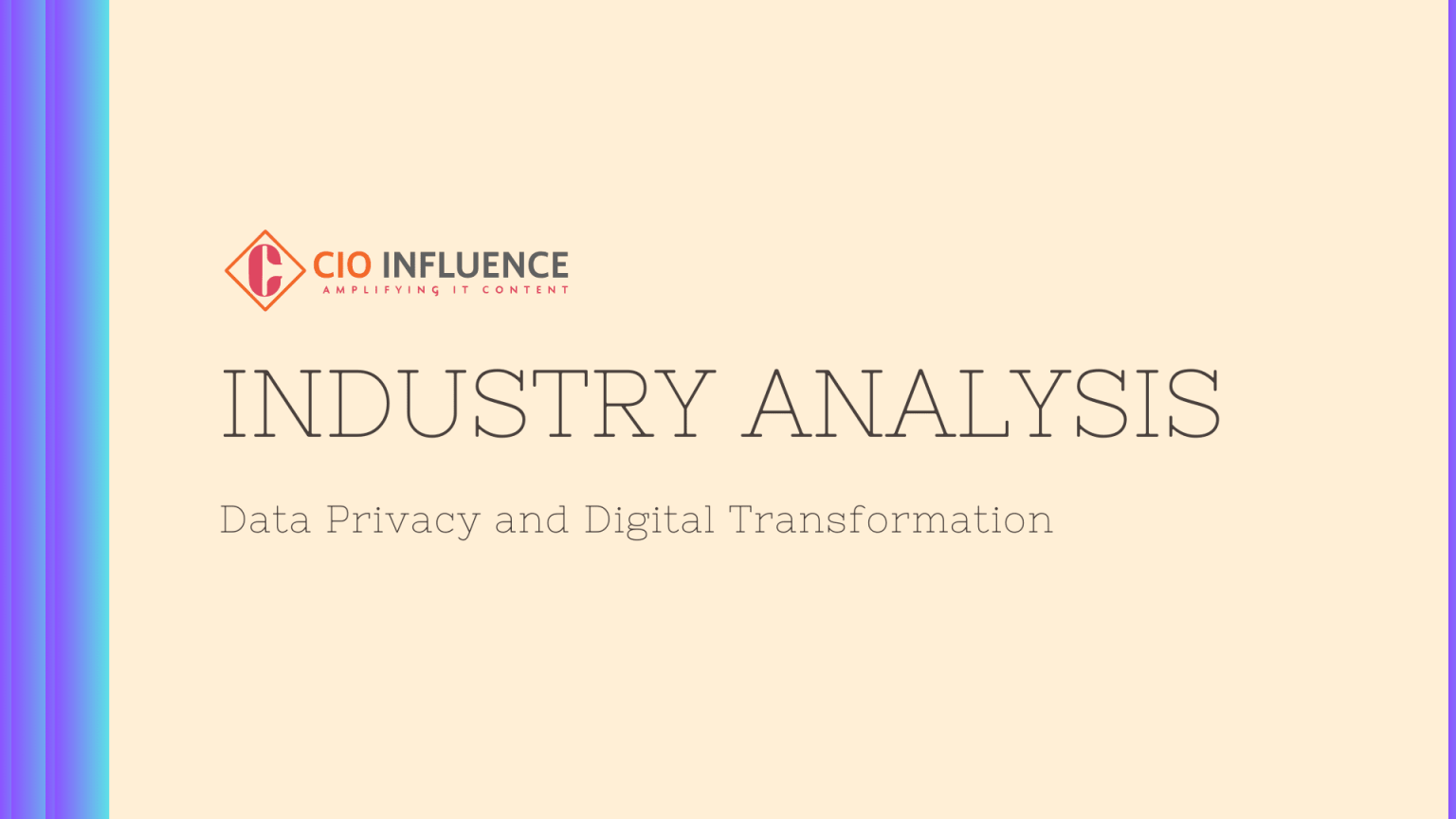IT Leaders Share their Insights on Data Privacy and Digital Transformation

According to Gartner, 75 percent of the global population will have their personal data covered under different data privacy regulations. Last week, we celebrated Data Privacy Day, a global cybersecurity event that is focused on the safety, security, and privacy of enterprise and consumer data. The theme for this year is “Take Control of Your Data.” Led by the National Cyber Security Alliance (NCSA), Data Privacy Day represents a global initiative targeted at raising awareness about the changing dynamics in Marketing, Advertising, and IT data management, as applied to the realm of enterprise and customer data privacy frameworks. As IT leaders strive to redefine new guidelines for privacy and security, they could shift budgets and strategies toward AI-led identity management and privacy-first campaigns. We spoke to the top IT leaders from data-driven organizations to understand how this year’s Data Privacy Day is a roadmap for building a reliable consumer data protection strategy in 2024.
Understanding Consumer Trust in a Cookieless Future
Jamie Hesketh, VP of Product at Picnic
“Data privacy is undergoing a transformative shift, largely driven by the inevitability of a cookieless future.
Advertisers are compelled to pivot towards user-friendly, privacy-first targeting methods, be it through a deeper emphasis on contextual targeting or the exploration of cutting-edge technologies like machine learning attribution or Google’s Privacy Sandbox.
This shift necessitates extensive collaboration across the industry and rigorous testing during the adoption and transition phase. Those who fail to act and adapt risk falling behind, facing challenges in targeting accuracy as well as consumer trust in the evolving landscape of consumer data protection.”
Data Privacy is Disrupting Digital Advertising
Suzanna Chaplin, CEO at esbconnect
“Data privacy is an increasingly important topic and one that is causing widespread disruption in the digital advertising industry as brands, marketers, and platforms scramble to keep abreast of the latest consumer privacy legislation. Things are changing seriously fast, and it’s sometimes questionable as to whether decisions made by the likes of Google and Apple are always in the best interests of consumers (and advertisers). For example, the digital advertising industry relies at a fundamental level on the ability to track conversions, and the majority track this at a 1-1 level, but this is increasingly difficult to do thanks to updated privacy policies by these large tech companies.
The power and size of these platforms means they have become the unelected judge, jury, and executioner of audience tracking, and they seem to be the only stakeholders to benefit.”
Sandbox, IDs, Contextual Targeting, and Cookies in the Data Privacy Era
Peter Wallace, General Manager for EMEA at GumGum
“It’s important that all organizations today acknowledge the importance of Data Privacy Day and join the global effort to respect people’s privacy and safeguard personal data. For the digital advertising industry, this is even more poignant in 2024 because of the deprecation of third-party cookies on Chrome, and the end of behavioral ads as the dominant method for targeting users online. Google could still adapt its timeframe for Chrome, of course, but the direction of travel won’t change. Advertisers are already exploring the viability of alternative strategies.
The problem is, that not all of the alternative solutions in the pipeline are inspiring the level of confidence they should. There are significant concerns around Privacy Sandbox, Google’s own replacement for third-party cookies, over whether it will be ready in time. Ongoing anti-competition investigations by the DoJ in the US and CMA in the UK will only add to that uncertainty. ID solutions, another audience targeting method being mooted, also face challenges that could mean they won’t fully scale for some time.
That’s why we’re seeing a major uptick of interest from advertisers in cookieless solutions, especially Mindset technologies like contextual targeting. Unlike Sandbox and IDs, contextual advertising requires absolutely no personal data, meaning it fully respects the privacy of consumers and will never be threatened by evolving privacy regulations. And, when it is deployed in combination with engaging, high-impact creatives and attention-based measurement and optimization, contextual becomes the blueprint for advertising in a post-cookie, privacy-first age; far more effective at reaching relevant consumers with the right mindset than behavioral advertising ever was.”
How do They Know So Much About Me? — Let the Data Speak!
Sean Adams, CMO of Brand Metrics
“In 2024, it seems even more pertinent than ever to celebrate a Data Privacy Day.
Especially with Google’s deprecation of cookies now starting to happen. Historically, even though people may have been largely careful about the information they freely supplied to companies, cookies meant they would still have been on the receiving end of endless targeted ad campaigns. This can become a double-edged sword. The better the targeting becomes, the more effective it is to advertisers, but in turn, the more it may raise the suspicions of the person in the street – “How do they know so much about me?”.
In that frame of mind, consumers may be more likely to avoid accepting cookies when entering sites, start applying ad blockers, and be more likely to delete existing cookies or utilize private browsing options. This can increase their perceived privacy levels, and may also lead publishers like The Guardian to explore how it commercialises non-consented audiences, via Guardian Light. This shift in the marketplace is likely to cause big changes in the ad tech world as companies previously dependent on retargeting via third-party cookies have to find an alternative approach or die. However, as the cookie meets its maker, there are plenty of positives to be found across the industry. For publishers in particular we see the increased focus on data privacy as a positive. That’s because the relationship publishers have with their audiences – and the value of any first-party data their audiences are willing to share with them – will become increasingly important.
Publishers understanding their audiences, being able to communicate with them, and also being able to measure the effect of these communications on consumers in a data-compliant way will become increasingly important, helping them to take back revenue lost in previous years. It will be fascinating to see how much the dynamics have changed when we welcome Data Privacy Day 2025.”
Read more in: CIO Influence



